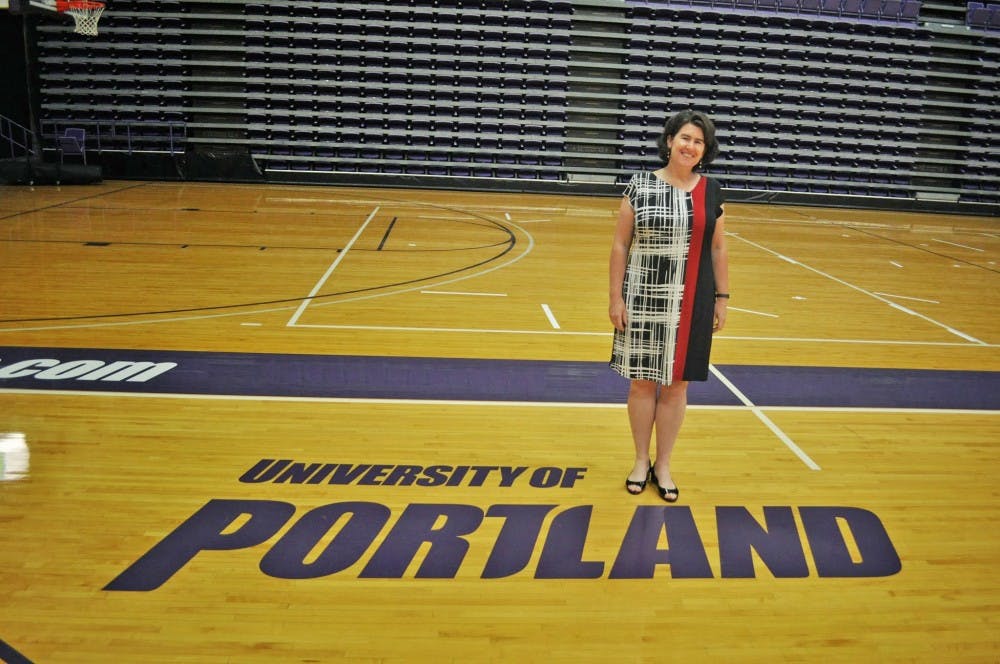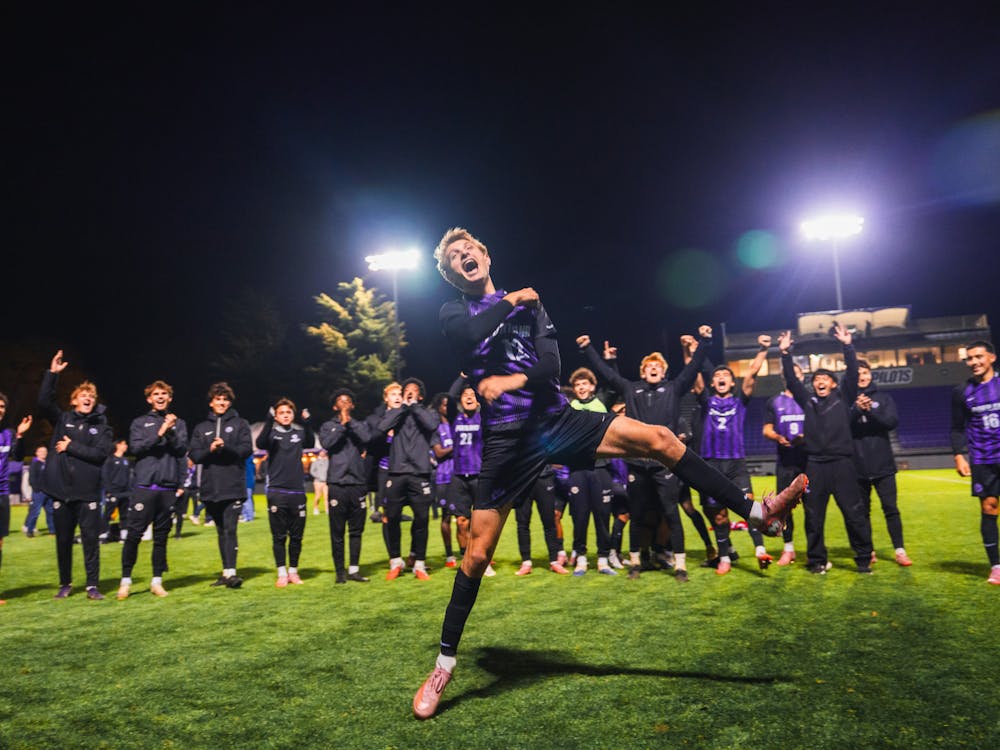Rarely do we consider what is going on behind the scenes of our Pilot teams. How often, as we are crammed into Merlo, chanting ‘Pilots till I die’ do we think about the people behind the curtain in Chiles Center working to make the athletic program function smoothly?
This July, Karen Peters, our senior associate athletic director, was the recipient of an Administrator of the Year Award from the National Association of Collegiate Women Athletic Administrators (NACWAA).
This award recognizes women administrators doing outstanding work in an industry commonly dominated by men. However, Peters does not consider herself a trailblazer. In fact, she considers a great deal of her successes to be the result of fantastic mentors and enjoyment of her work.
Peters, who got her start in the athletic industry as a softball scorekeeper, went on to obtain her masters at Amherst, work for ten years in Stanford’s Athletic Dept. at the forefront of Title IX and gender equity issues, was the interim Athletic Director at UP last year and has overseen a significant increase in female athletic participation at UP. All this, and she still manages to volunteer once a week at her son’s elementary school.
In her role as Senior Associate Athletic Director, Peters oversees management of the internal affairs happening within the department while also being a supervisor for countless sports programs.
Peters attributes her rise in the sports management world to a great beginning during her undergrad at New Mexico State University working in sports PR with many fantastic mentors.
“My boss at the time would take each senior employee out and would say ‘what do we need to do to get you where you want to go?’ Peters said. “He knew I was a good student and I could continue to work in sports PR, but he didn’t want me to limit myself and he recommended grad school to me. Naturally, I didn’t even realize you could go to grad school for sports administration. I ended up going to Amherst and it was great because it was so broad. It wasn’t just sports, it was how to be a leader and how to be an administrator. It taught me so many invaluable things.”
Peters has been at the forefront of Title IX initiatives, particularly during her time at Stanford. She initially became interested as an undergrad when the NCAA was first beginning to evaluate female athletic participation on a national scale.
“During my time at Stanford I basically said if you are doing work on Title IX I want to be involved and help,” Peters said. “They took me up on it and I found myself getting to be part of committees boasting members, Condoleezza Rice for example. I got to listen to a lot of incredible perspectives and recognize the importance of supporting both sides never at the expense of one gender. That’s the most important thing to recognize when dealing with gender equity issues. You want to support each gender’s athletics, but never at the expense of the other.”
Peters has picked up leadership advice from her many talented mentors, but said the most invaluable has been the importance of relationship building.
“In a big department it’s huge to recognize the diversity and individual needs of every coach, player and director. Getting to know them and what they need is an invaluable part of being a leader.”
During her time on The Bluff, Peters has overseen a 13 percent increase in female athletic participation. Peters attributed this primarily to the development of the rowing program, which she was instrumental in developing.
“When we were looking at adding rowing we were thinking okay hopefully we can get 40 girls interested. If we can get 40 the first couple of years it can be a success,” Peters said. “It was kind of like when you throw a party and just hope someone shows up. The first team meeting occurred and at 6:30 in the morning we had 63 young women show up. It was remarkable.”
With women’s ability to ‘have it all’ often questioned, Peters is a shining example of an individual proving the naysayers wrong, balancing both an impressive career and a family. However, Peters doesn’t think of her life as a balance between work and family.
“Everything kind of messily overlaps and you prioritize day by day,” she said. “One of the most essential and well-kept secrets of all this is to find a partner that is going to support you and work with you. And be lucky enough to work at a place like UP that recognizes the importance of family as well.”
Peters demonstrates that careers are a jungle gym, not a ladder. What began as a job as a scorekeeper evolved into a passion for sports management and an appreciation for the magic of the game and the unity that one feels being a part of it.








